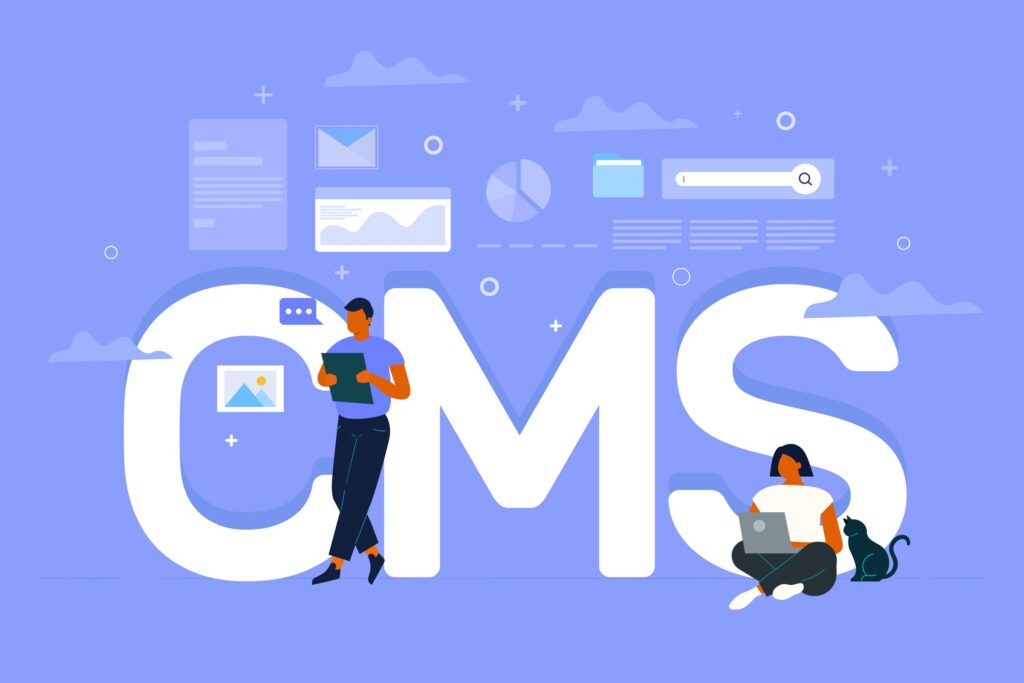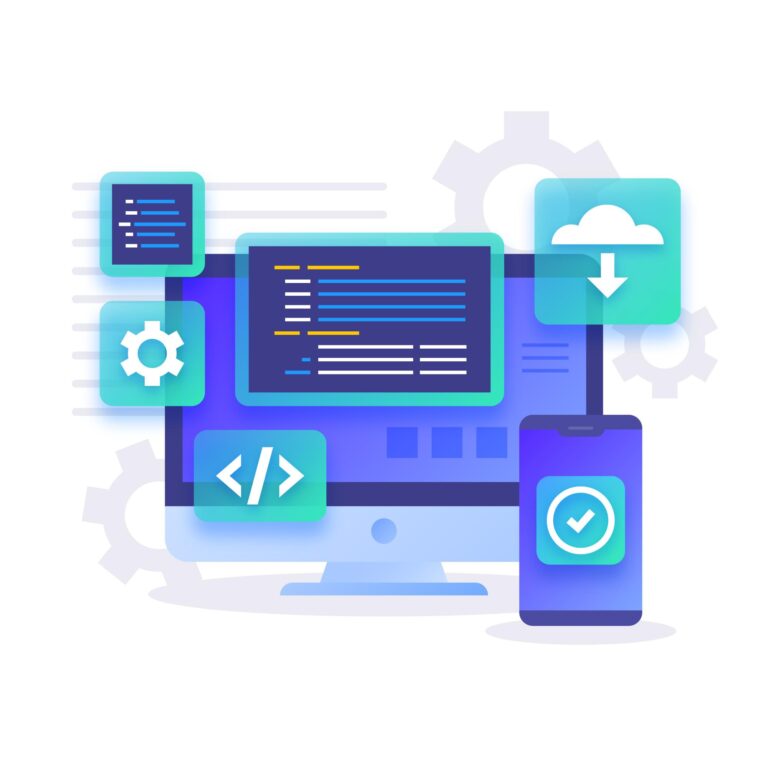Web App Services
Web Services
SEO | PPC | SMO | Web Application | Mobile Application | UI/UX | Logo Creation | Graphics
Web application
Website applications, also known as web applications, are software programs that are designed to run on web browsers. They are typically written in languages such as HTML, CSS, and JavaScript and are accessed via the internet using a web browser.
Website applications can perform a wide variety of functions, including processing forms, managing user accounts, displaying dynamic content, and interacting with databases. They can be as simple as a single-page website or as complex as a large enterprise-level application.
Examples of website applications include online shopping carts, social media platforms, email clients, project management tools, and content management systems. Many companies and organizations use website applications as a way to interact with their customers, manage their operations, and store and share information.
Website applications are becoming increasingly popular because they are accessible from anywhere with an internet connection and do not require users to download and install software on their devices. They also enable developers to create cross-platform applications that can be used on a wide range of devices and operating systems.
CMS
Wordpress cms
Codeigniter (CI)
Codeigniter (CI)
Laravel
Laravel
eCommerce
eCommerce
HTML
HTML
Angular JS
Angular JS
CMS | WordPress
WordPress is a popular content management system (CMS) that allows users to create and manage websites easily. It was initially developed as a blogging platform, but has since evolved to become a versatile CMS that can be used for a wide range of websites, including blogs, e-commerce stores, portfolios, and corporate websites.
WordPress is an open-source platform, which means that the software is freely available for anyone to use, modify, and distribute. It is built using PHP and MySQL, and comes with a powerful set of features, including a built-in content editor, customizable themes and plugins, and a user-friendly interface.

One of the main advantages of WordPress is its ease of use. It doesn’t require users to have advanced technical skills to create and manage a website. The platform has a user-friendly interface that allows users to add and edit content, customize the website design, and manage website settings easily.
Another advantage of WordPress is its flexibility. It has a vast ecosystem of themes and plugins that can be used to extend the platform’s functionality. Users can choose from thousands of free and premium themes to customize the look and feel of their website, and use plugins to add features such as contact forms, social media integration, and e-commerce functionality.
WordPress is also highly scalable, which means that it can be used to build websites of any size and complexity. It can be used to build small personal blogs as well as large enterprise-level websites with complex functionality.
Overall, WordPress is a powerful and flexible content management system that can be used to create and manage websites easily. Its ease of use, flexibility, and scalability make it a popular choice for businesses, bloggers, and website owners around the world.

Ecommerce | Woocommerce | Magento
E-commerce is the buying and selling of goods and services over the internet. It has become increasingly popular in recent years as more people have turned to online shopping.
WooCommerce and Magento are two popular e-commerce platforms that are used by businesses of all sizes to create online stores and sell products and services online.
WooCommerce is an open-source e-commerce platform that is built on top of WordPress. It is a popular choice for small to medium-sized businesses that are looking for an easy-to-use platform that can be customized to meet their specific needs. WooCommerce offers a wide range of features and extensions, making it easy to create a fully-functional online store that can handle payments, shipping, and more.
Magento, on the other hand, is a more robust and feature-rich e-commerce platform that is designed for larger businesses with more complex needs. It offers a wide range of features and tools, including advanced inventory management, multi-store capabilities, and extensive customization options. Magento is a more powerful platform than WooCommerce, but it can also be more complex and difficult to set up and use.
Both WooCommerce and Magento offer a wide range of features and tools that can help businesses create and manage their online stores effectively. The choice between these platforms will depend on a variety of factors, including the size and complexity of your business, your budget, and your specific needs and goals.
Ultimately, the key to success with e-commerce is to choose the platform that best meets your needs, and to work with a team of experienced developers and designers who can help you create a high-quality, user-friendly online store that attracts and converts customers effectively.
Custom made | Laravel | CI
When it comes to creating custom web applications, there are several options available to businesses, including Laravel, CodeIgniter (CI), and Core PHP.
Laravel is a popular PHP framework that is known for its robust features and ease of use. It offers a wide range of tools and functionalities that make it easy to create custom web applications, including authentication, routing, database management, and more. Laravel also has a large and active community of developers, which means that there are plenty of resources and tutorials available to help you learn and use the framework effectively.
CodeIgniter (CI) is another PHP framework that is known for its simplicity and flexibility. It is lightweight and easy to use, making it a popular choice for smaller projects or for developers who are new to PHP. CI offers a wide range of features, including database management, templating, and more, making it a good option for creating custom web applications quickly and easily.

Core PHP is the basic, underlying code that powers many web applications. It is a low-level programming language that is used to create custom web applications from scratch. While Core PHP offers a high degree of flexibility and control, it also requires a higher level of expertise to use effectively. Developers who are proficient in Core PHP can create highly customized web applications that are tailored to their clients’ specific needs and requirements.
Ultimately, the choice between Laravel, CodeIgniter, and Core PHP will depend on a variety of factors, including the size and complexity of the project, the developer’s expertise and experience, and the specific needs and requirements of the client. With the right platform and development team, businesses can create highly customized web applications that meet their unique needs and help them achieve their goals.


Hire Dedicated Resource for Your Dream Project
Hiring a dedicated resource for your dream project can be a great way to ensure that your project is completed on time, within budget, and to your exact specifications. Dedicated resources are experienced professionals who work exclusively on your project, and who are committed to delivering high-quality results.
When hiring a dedicated resource, there are several factors to consider, including:
- Skill set: You will want to make sure that the dedicated resource you hire has the skills and expertise necessary to complete your project successfully. Look for candidates with experience in your industry, as well as a track record of delivering high-quality results.
- Communication: It is important to hire a dedicated resource who is a good communicator, and who can keep you updated on the progress of your project. Look for candidates who are responsive, articulate, and able to explain technical concepts in a way that is easy to understand.
- Flexibility: Your project requirements may change over time, so it is important to hire a dedicated resource who is flexible and adaptable. Look for candidates who are willing to take on new challenges and who can work effectively in a dynamic environment.
- Cost: Hiring a dedicated resource can be more cost-effective than hiring a full-time employee, but it is still important to consider the cost of the resource in relation to your budget. Look for candidates who offer competitive rates, but who are also able to deliver high-quality results.
When hiring a dedicated resource, it is important to work with a reputable agency or company that can help you find the right candidate for your project. Look for a partner who has a proven track record of delivering high-quality results, and who can provide you with the support and guidance you need to ensure your project is a success.
Angular JS | Node JS | Vue JS
AngularJS, Node.js, and Vue.js are three popular JavaScript-based frameworks that are widely used for creating web applications.
AngularJS is a front-end framework that is maintained by Google. It is known for its robust features and ease of use, and is particularly popular for creating complex, data-driven web applications. AngularJS offers a wide range of tools and functionalities, including two-way data binding, dependency injection, and more.
Node.js, on the other hand, is a back-end JavaScript framework that is used for building scalable and high-performance web applications. It offers a wide range of features, including a powerful package manager, built-in web server, and more. Node.js is particularly popular for creating real-time web applications, such as chat applications or multiplayer games.



Vue.js is a front-end framework that is known for its simplicity and ease of use. It offers a wide range of tools and functionalities that make it easy to create interactive, user-friendly web applications. Vue.js is particularly popular among developers who are looking for a lightweight and flexible framework that is easy to learn and use.
Ultimately, the choice between AngularJS, Node.js, and Vue.js will depend on a variety of factors, including the size and complexity of your project, your specific needs and requirements, and your development team’s expertise and experience. Each framework has its own strengths and weaknesses, and it is important to choose the one that is best suited to your needs and goals.
With the right framework and development team, businesses can create high-quality web applications that are tailored to their specific needs and requirements, and that help them achieve their goals.


HTML | HTML5
HTML (Hypertext Markup Language) is a markup language used to create and structure content for the web. It is the foundation of every web page, and is used to define the structure and content of web pages, including headings, paragraphs, images, links, and more. HTML provides a standardized way to structure and present content on the web, and is essential for creating accessible, well-organized web pages.
HTML5 is the latest version of HTML, and includes a range of new features and improvements over earlier versions. It was designed to improve the capabilities of web applications and provide a more seamless user experience, particularly on mobile devices. Some of the key features of HTML5 include:
- Improved multimedia support: HTML5 includes built-in support for audio and video, making it easier to embed multimedia content on web pages without the need for third-party plugins.
- Enhanced forms: HTML5 includes new form elements, such as date pickers and sliders, making it easier to create user-friendly forms on web pages.
- Improved semantics: HTML5 includes new semantic elements, such as article, section, and header, that make it easier to structure content on web pages and improve accessibility.
- Mobile optimization: HTML5 includes features that are designed to improve the performance of web applications on mobile devices, including support for geolocation, touch events, and offline storage.
Overall, HTML5 represents a significant improvement over earlier versions of HTML, and offers a range of new features and improvements that make it easier to create engaging and interactive web applications. While HTML remains an essential part of web development, HTML5 is rapidly becoming the new standard for creating high-quality, responsive web pages and applications.
